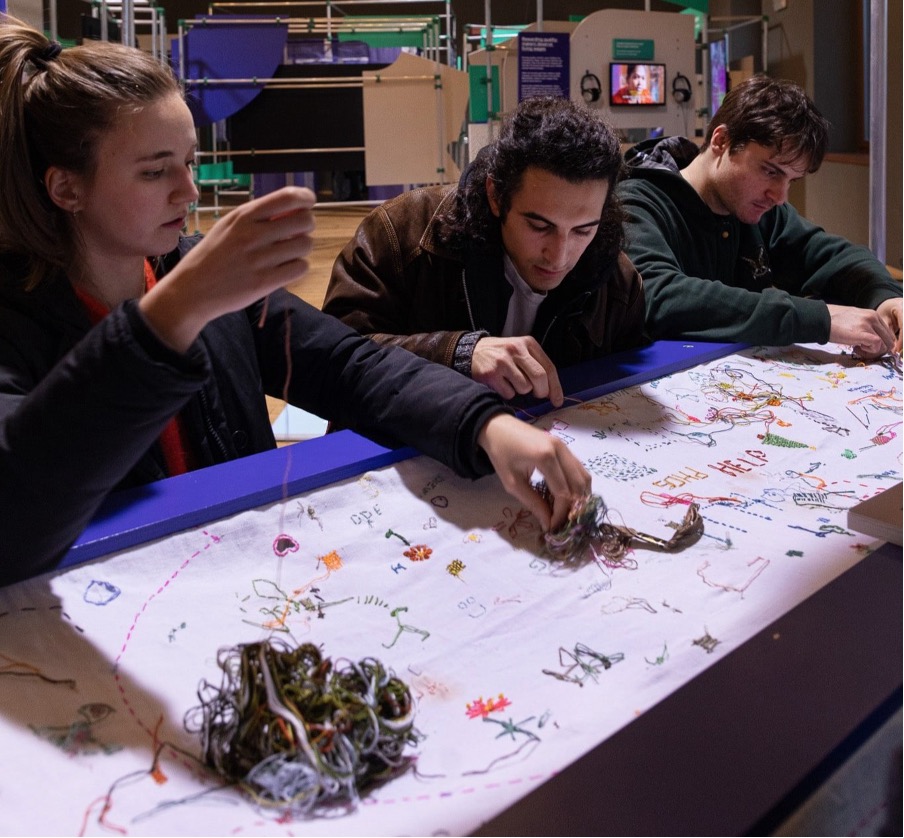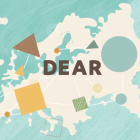Sfashion Weekend in Milano
News details

For the first time, the Italian fashion capital hosted a festival dedicated to the hidden and dark realities of the global fashion industry. Slow fashion activists, workers, and artists gathered in Milano, at the Sfashion Weekend (21-23 February), to advocate for a just transition in fashion. Through discussions, exhibitions, and performances, they highlighted the need for systemic change in the sector.
The Sfashion Weekend made it clear: the fashion industry stands at a crossroads. It can either continue fueling exploitation and environmental destruction or embrace a radical transformation centered on social and ecological justice. The organisers, including DEAR-funded project “Fashioning a Just Transition” concluded:
“These three days […] made us realize that many of us want to overturn […] the dynamics governing the textile sector. Dynamics that infringe on the rights of workers […] in the name of profit that benefits only a few, but has significant repercussions on the planet, which belongs to all of us.”
Clothing’s Cost & Consumption
The fashion - and in particular textile - industry is notorious for worker exploitation and environmental damage. A Sfashion exhibition titled “Handmade – the true makers of fashion” laid bare the economic injustice within the industry. For a t-shirt sold at €29, only 18 cents go to the worker. Cost of materials and transportation are €5.59. Retailers make €17, while the remaining profit goes to the brand, the manufacturer and other intermediaries. This is a very concrete example of how the global fashion supply chain maximises profits at the expense of fair wages.
Gender inequities in the sector further compound the issue. In Asia, for example, women earn, on average, 18.5% less than men. In Pakistan, this wage gap reached an alarming 41% in 2018. Female workers also earn at most half a living wage. Also in Europe, pay disparities persist.
The festival also focused on the environmental consequences of overconsumption. European citizens generate an average of 11kg of textile waste per year. By 2030, clothing production is expected to increase by 50-60%. Yet, the planet already has sufficient clothes to dress six future generations.
“The current challenge is to understand how to dress in a way that is compatible with the limits of a planet in crisis,” said Deborah Lucchetti, Italian coordinator of the Clean Clothes Campaign.
Artivists and Workers Speak out and Move
The festival’s show Giralamoda follows the journey of a t-shirt. It starts from the cotton fields, sprayed with pesticides that poison those who harvest them. The performance then moves to highlight the hardships in clothes’ factories with very young workers. The dancers show how girls’ bodies are often damaged by the tough working conditions.
Another collective performance, co-created by a German artist and educator, used body and emotional intelligence. Festival goers physically explored textile labor through embarrassed smiles and drops of sweat in her piece “Self-As-Other-Training: Textiles”
Former employees of an Italian luxury lingerie brand, now united in an association, underscored the power of collective action. “The system seeks to atomize relationships to weaken us, but only in unity lies the power to amplify our struggles,” they stated. Their message resonated throughout the event, reinforcing the importance of worker solidarity.
The Path Forward for Sustainable Fashion
The slow-fashion advocates and activists are working from all angles to fight for change. An Italian public prosecutor is enforcing existing laws against exploitation in the luxury fashion sector. Unions advocate for fair wages in the fashion industry through institutional strikes. Two activist collectives, “Bruciamo Tutto” and “Ultima Generazione”, used performance to testify about the exploitation of bodies in the current fashion systems. Researchers, such as the author of L'Odyssée d'Abdoul (2024), Audrey Millet, also shed light onto the exploitation system that permeates the textile industry.
Public Eye, the NGO coordinating the Clean Clothes Campaign in Switzerland, has outlined 33 transformation goals for 2030 in their One-Earth Fashion report. For example, they propose doubling the average lifespan of garments from 80 to 160 days. One practical and enjoyable solution? Swapping. The festival concluded with a lively swap party organized by Declout, attended by about 200 people, demonstrating that sustainable fashion can be both ethical and fun.
The event’s underlying message was clear: fashion’s future must be one of justice, sustainability, and respect for workers. The Sfashion Weekend was more than a festival—it was part of a movement, and one that continues to grow.

Log in with your EU Login account to post or comment on the platform.